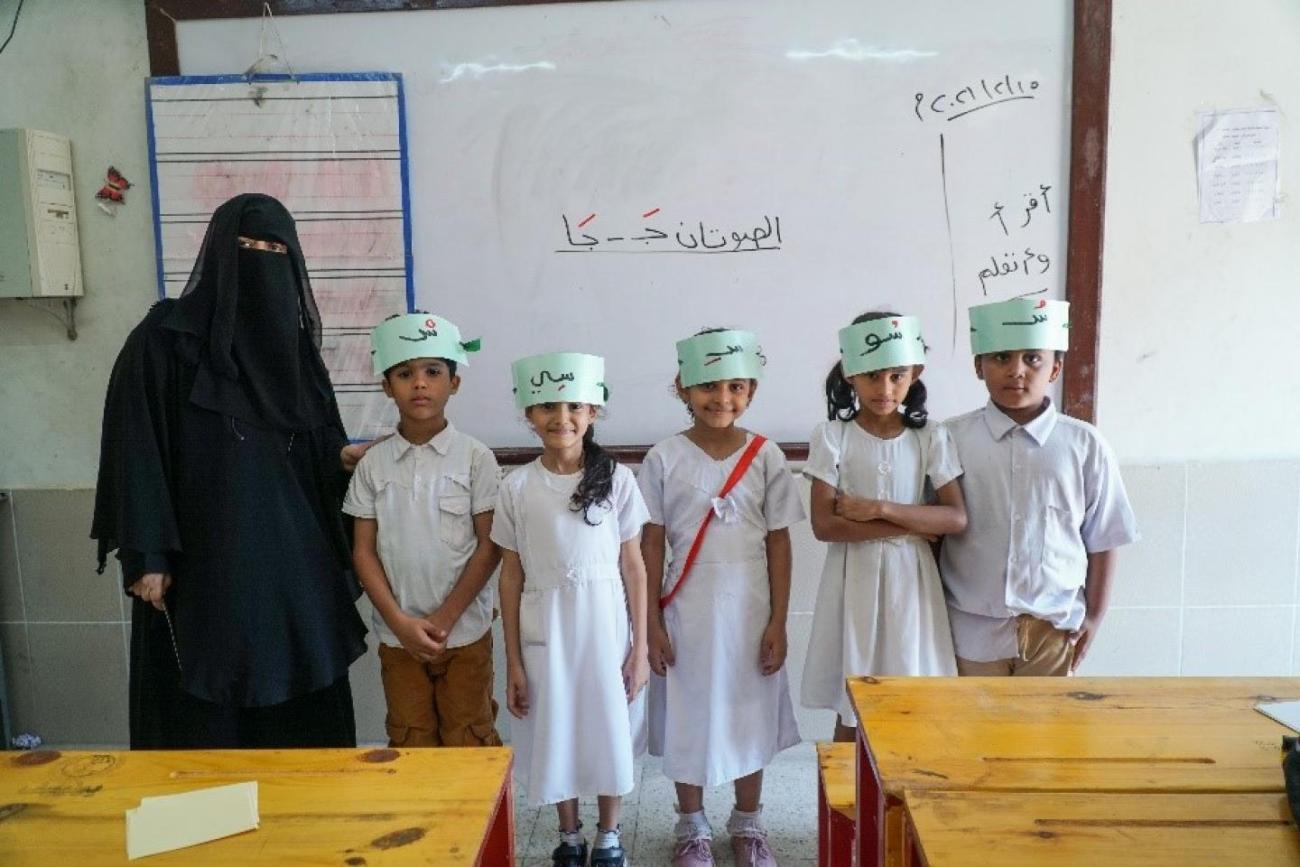UNICEF works on training teachers and school personnel on new teaching methods & rehabilitating water and sanitation facilities in schools around the country.
“It was difficult for students to learn the alphabet letters in the first grade and we noticed that many people in the seventh, eighth and ninth grades could not read”. This is the situation that Malkah Amr Saeed, an Arabic reading curriculum teacher at Raydan Girls' School, Aden, Yemen, describes before the start of the Access to Quality Education and WASH in Schools project.
Supported by the Government of Japan, it included three parts: training teachers and school personnel on new teaching methods; providing school supplies and material; and rehabilitating water and sanitation facilities in schools around the country for a better learning environment.
Teachers and school personnel alike agree that their perspective on teaching has changed since they attended training. “In the training course, we learned how to teach students in an entertaining way. I changed the way I teach reading; students used to feel that it was difficult for them to learn the alphabet letters in the first grade, so now we teach sounds instead”, Malkah explains. Learning now involves lots of games and putting letters into words, so students love this subject and understand it. And judging by their happy faces, this has made her subject popular among children.
“Students used to sit in the classroom, memorize the lesson and write it. The traditional studies were of no use, so the process of training teachers and school administration for psychosocial support was a helpful factor for the educational process, especially after the conflict started,” Rajaa Qahtan Mohammed, the school principal explains. She adds that the benefits of psychosocial support to girls in particular extend to the whole family and society. “I have 1,100 students and every female student is responsible at home, not just in school. When students feel good and comfortable with the method of education, this affects their home, family and society”, she says.
To read the complete story, visit UNICEF's Yemen website.




